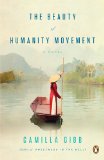Summary | Excerpt | Reading Guide | Reviews | Beyond the Book | Readalikes | Genres & Themes | Author Bio

A Novel
by Camilla Gibb
The tourist will then turn his blue eyes to his companion and say, "Really. I had no idea."
"In 1926 by Mr. Erik Rotheim, chemical engineer," Tu might add.
He also attempts to wow with statistics - a communist education encourages such things - the land area of each administrative division in the country, for instance, the number of university graduates from various faculties, the lengths of the Mekong, and Red Rivers and the Great Wall of China.
Really.
It was Phuong who pulled him aside one day and said, "When they say really, it actually means that is very boring."
"Really?" Tu asked.
"Really."
Tu believes it is shared wisdom like this that has made them the A-team. But he is still learning, and perhaps that is what he likes best about his job. No pain, no gain, as the Americans say.
This morning he and Phuong are escorting a middle-aged Canadian couple to some nearby villages. Tu likes the Canadians, even if their most exciting invention was only the garbage bag. (Really. In 1950 by Mr. Harry Wasylyk of Winnipeg, Manitoba.) They are generally kind, though it always amuses him how they introduce themselves with variations of "Hello, nice to meet you, we are from Canada, see the maple leaves sewn onto our knapsacks? Our country might be right next door, but it's a world apart from its southern neighbor; in fact, we offered refuge to a great many draft dodgers who did not believe the Americans should be in Vietnam - horrible, horrible war, horrible, horrible USA, horrible, horrible George Bush, and Iraq; now don't get me started on Iraq . . ."
"Yes, yes," and Tu will nod and smile because he does not want to speak a truth they will find complicated or disagreeable. This is what is meant by saving face. The war was a long time ago, well before Tu was born, and besides, in his opinion, an opinion shared with most of his friends, everything great was invented in the United States. Blue jeans, for example. And Nikes and Tommy Hilfiger. And MTV and Nintendo and the Internet. And furthermore, the Vietnamese beat the Americans; they don't go around boasting about it, but it's true. It wasn't like the Chinese, crushing the Vietnamese for a thousand years, or the French, who tortured and killed for decades, making the Vietnamese slaves in their own country and taking every decision out of their hands.
While such thoughts might fly around like a Ping-Pong ball inside Tu's head, none of his clients would ever suspect it. Tu works hard to impress them with his good nature and exemplary customer service, and is ever ready with his New Dawn smile.
Today's Canadians are from Quebec, the first French Canadians Tu has ever met. "We, too, were colonized by the French, as I am sure you are aware," he said when he met them in the lobby yesterday, attempting to establish some common bond.
Their reaction had caused Tu to spend most of last night in an Internet café. Today he hopes to redeem himself with sensitive insights into their unique history and culture. He will need to because Phuong, green with a hangover, does not look like he will be of any particular help.
Tu is indebted to his friend for changing his life, and he considers Phuong a brother. He envies him like a brother too. Phu?ng is taller and leaner, but it's not Tu's fault he inherited his father's slightly bowed legs. The baggy jeans fortunately help disguise this. And at least both his eyes are real; there is no danger of inheriting his father's glass eye. Tu doesn't have nearly as white a smile as Phuong's, his upper teeth having been stained from taking antibiotics when he was a kid, but again - not his fault. And his hands? A little small, but surely more than made up for by the size and enthusiasm of his penis, as his future wife will discover.
Currently there are no candidates for that job. An introduction through family is always best, and even if Phuong prefers random girls for himself, as Tu's honorary older brother, he introduces him to girls from time to time.
Excerpted from The Beauty of Humanity Movement by Camilla Gibb. Copyright © 2011 by Camilla Gibb. Excerpted by permission of Penguin Press. All rights reserved. No part of this excerpt may be reproduced or reprinted without permission in writing from the publisher.
Your guide toexceptional books
BookBrowse seeks out and recommends the best in contemporary fiction and nonfiction—books that not only engage and entertain but also deepen our understanding of ourselves and the world around us.